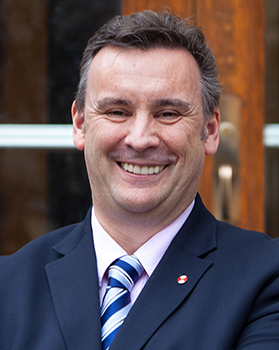Photonics for Point of Care Diagnostics

Distinguished Lecturer, IEEE Photonics Society
Professor, Department of Physics, University of Toronto
May 2, 2017 13:30 - 14:30
Mackenzie Building Room 4124, Carleton University
Refreshments will be served.
Admission: Free
abstract
Transforming our world: the 2030 Agenda for Sustainable Development sets out 17 goals which UN member states have committed to work towards. Goal 3: Ensure healthy lives and promote well-being for all at all ages identifies multiple targets related to improved Global Health by 2030. These include: ending the epidemics of AIDS, Malaria, TB and other neglected tropical diseases; reducing maternal mortality; and ending preventable deaths of newborns and children under 5. A key component towards realizing these goals is the ability to diagnose and monitor illness and disease in remote and rural settings The combination of photonics and microfluidics provides the ideal platform for developing point-of-care testing devices, which allow common blood tests to be deployed in the field. This presentation will outline our work on the development of an on-chip flow cytometer for cell and molecular diagnostics, describe the implementation of a CD4 cell counting test for HIV patients and consider future developments of point of care testing. This presentation will also highlight the steps towards commercialization which have enabled the creation of a new start-up company.
biography
Stewart Aitchison received a BSc and a PhD from the Department of Physics, Heriot-Watt University, Edinburgh, in 1984 and 1987 respectively. His PhD dissertation research was on optical bi-stability in semiconductor waveguides. From 1988 to 1990 he was a Postdoctoral Member of Technical Staff at Bellcore, Red Bank NJ. His research interests there were in high nonlinearity glasses and spatial optical solitons. He joined the University of Glasgow Department of Electronics and Electrical Engineering in 1990 and was promoted to a Personal Chair as Professor of Photonics in 1999. His research in Glasgow focused on the use of the half band gap nonlinearity of semiconductors for the realization of all-optical switching devices and the study of spatial soliton effects. He also worked on the development of quasi phase matching techniques in semiconductors, monolithic integration, optical rectification, and planar silica technology. His research group developed novel optical biosensors, waveguide lasers and photosensitive direct writing processes based around the use of Flame Hydrolysis Deposited (FHD) silica. In 1996 he held a Royal Society of Edinburgh Personal Fellowship and carried out research on spatial solitons as a visiting researcher at the CREOL, University of Central Florida. Since 2001, Professor Aitchison has held the Nortel Chair in Emerging Technology in the Department of Electrical and Computer Engineering at the University of Toronto. His current research covers all-optical switching and signal processing, optoelectronic integration and optical bio-sensors. From 2004-2007 he was the Director of the Emerging Communications Technology Institute at the University of Toronto, where he established a $30 million open access facility for micro and nano-fabrication. From 2007-2012 he served as Vice-Dean Research for the Faculty of Applied Science and Engineering, University of Toronto. Since 2013 he has been the Associate Scientific Director for the Canada - India Network Centre of Excellence, IC-IMPACTS where he is responsible for the mobile health research theme. Professor Aitchison is a Fellow of the Royal Society of Canada, the Royal Society of Edinburgh, a Fellow of the American Association for the Advancement of Science, a Fellow the Optical Society of America and a Fellow the Institute of Physics.
Last updated May 1, 2017

